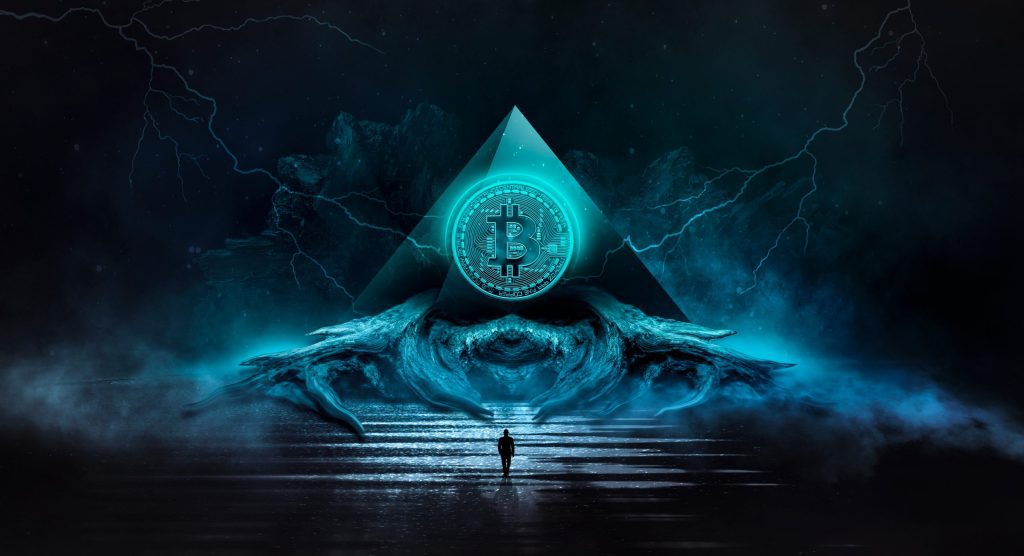Since its birth in 2009, Bitcoin’s success has been built on two core promises: Decentralization and absolute security. The world’s first and most powerful cryptocurrency has been lauded by its proponents as a digital, independent and fair monetary system, an answer to Central domination on Wall Street An alternative to national currencies such as the US dollar. Open to everyone with Internet access, decentralized and secure seamlessly across thousands of networks, with no central ruler. This is the Bitcoin myth. One of the largest blockchain security companies is now changing this catchy narrative.
Is the blockchain decentralized? It is the name of the 26-page report prepared by the experts at Trail of Bits. Founded in 2013, the company secures some of the largest crypto projects, including Ethereum, Polygon, Polkadot, and Chainlink. Web2 giants such as Microsoft, Google, and Zoom advises. The study was prepared on behalf of DARPA, the research division of the US Pentagon, known among other things for inventing the Internet.
Final report on bitcoin? sober. The usual Bitcoin advocates in the space (Anthony Pompliano, Michael Saylor, Jack Dorsey & Co.) have kept the lights out so far. BTC-ECHO will get ratings from experts in the next few days. Here are the main results.
Bitcoin and Co. is at risk.
- 1. Using the so-called Proof of Work consensus algorithm, miners keep the Bitcoin network alive. They create new blocks, ensure the reliability of the database and the security of the system. According to the Trail of Bits, 51 percent of this activity goes to four The largest mining groups return. This means that 0.004 percent of miners control more than half of the hash rate, the computing power of the network.
- 2. 60 percent of Bitcoin traffic is routed through just three ISPs, each highly centralized and prone to error, including Amazon Web Services. They can also simply deny access to individual nodes in the network (nodes) or throttle their speed if they want to.
- 3. Nearly 55 percent of bitcoin nodes also run on a dark web browser, Tor. Failure or attack on this ecosystem could have far-reaching consequences for Bitcoin. For example, Tor was attacked last year by a Russian hacker who briefly seized more than 40 percent of the network’s nodes.
- 4. 85 percent of the amount of bitcoin in circulation is concentrated in less than 5 percent of its owners.
- 5. The world’s leading mining pool ViaBTC uses password 123 for its accounts, according to Trail of Bits. The mining organization Pooling does not verify login credentials at all. Slushpool even directs its users to ignore the password field. These three mining pools account for about 25 percent of the total bitcoin hash rate.
- 21% of Bitcoin nodes are still running old software known to have security vulnerabilities since June 2021.
In the past, studies have repeatedly found that some areas of the blockchain are not as decentralized as they are marketed. Central analysis came to the conclusion that about one percent of the members in decentralized organizations have about 90 percent of the voting rights.
In the field of NFTs, according to another study by Chainalysis, about 80 percent of digital artworks are owned by at least ten percent of people, on the Ethereum blockchain.
Want to buy Cardano (ADA)?
You can easily do this via eToro. The provider offers investors, from novice to expert, a comprehensive crypto trading experience on a powerful and easy-to-use platform. Cardano can also be installed here.

“Tv expert. Hardcore creator. Extreme music fan. Lifelong twitter geek. Certified travel enthusiast. Baconaholic. Pop culture nerd. Reader. Freelance student.”





More Stories
Chocolate storm in Türkiye – the Swiss are confused
Big Topics at New UBS's First General Meeting – News
Traditional department store Globus – This is the Thai family company behind Globus – News